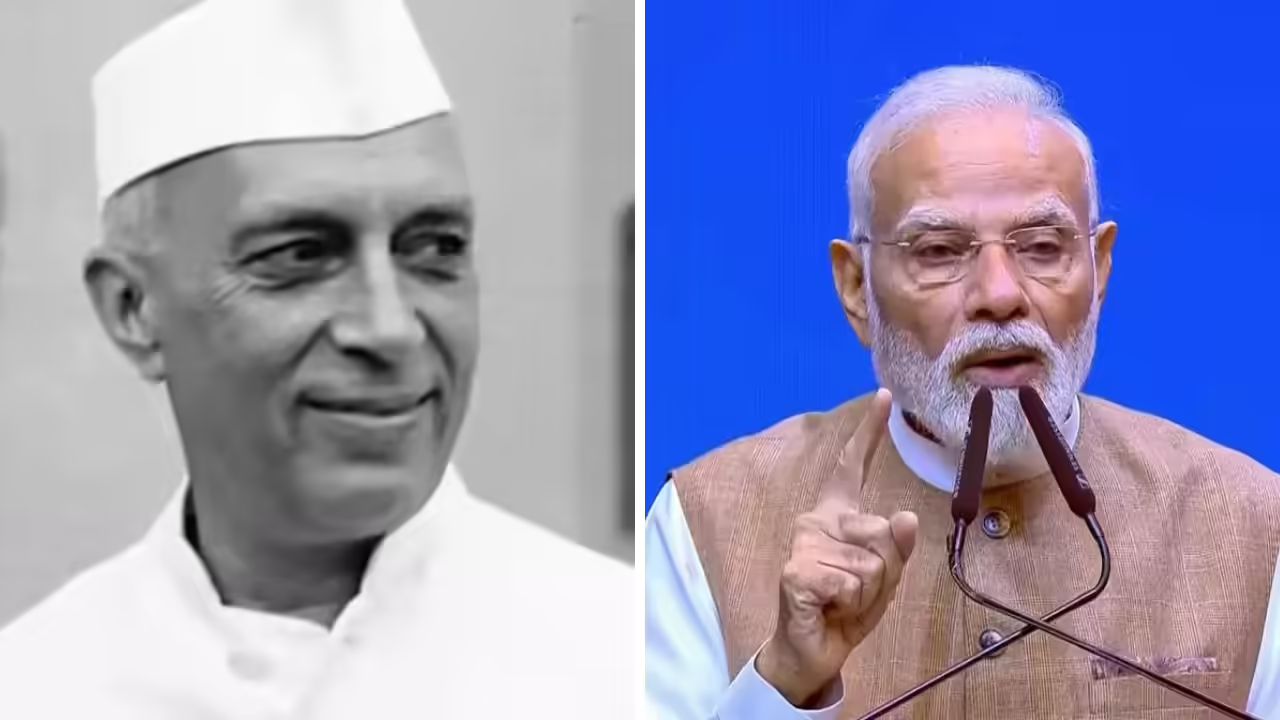 English
English

BJP has accused Congress of cutting Maa Durga stanzas from Vande Mataram in 1937 under Nehru, sparking a debate over the song’s original form, religion, and national identity as India celebrates its 150th anniversary. What really was removed and why?

BJP Sparks Debate Over Full Version of Vande Mataram
New Delhi: On the occasion of the 150th anniversary of Vande Mataram, a fresh political controversy has erupted over the song’s original form. BJP spokesperson C R Kesavan accused the Congress, under Jawaharlal Nehru’s leadership, of deliberately removing stanzas from the national song that praise Goddess Durga in 1937, alleging that the move was aimed at appeasing certain communal groups.
Kesavan claimed that during the 1937 Faizpur Session of the Congress, the party chose to adopt only the first two stanzas of Vande Mataram, omitting the later verses that invoked Maa Durga. He alleged that this was done to placate a section of Muslim leaders who objected to the religious imagery in the song.
Vande Mataram Turns 150: From Patriotic Poem to National Symbol of Indian Freedom
“It is imperative for our younger generation to know how the Congress party, under Nehru’s presidentship, truncated Vande Mataram to suit its communal agenda,” Kesavan wrote on X. He contrasted this with Prime Minister Narendra Modi’s current initiative to celebrate the full version of Vande Mataram across the nation as part of its 150-year commemoration.
Hon'ble PM @narendramodi ji points out how in 1937 some parts which were the soul of Vande Mataram were cut out. Citing the unjust division of Vande Matram PM said this sowed the seeds of nation's partition.He warned that such divisive thought still poses a challenge for nation. pic.twitter.com/LwaoxSc3k7
— C.R.Kesavan (@crkesavan) November 7, 2025
Defending the song’s universal appeal, Kesavan asserted that Vande Mataram “does not belong to any particular religion or language.” He called the Congress’s decision a “historic blunder,” arguing that it unfairly associated the song with a specific faith.
“The glorious Vande Mataram became the voice of India’s unity and resistance against colonial rule. Yet, the Congress, under Nehru, deliberately diluted its essence by removing verses that hailed Goddess Durga,” Kesavan said.
The controversy over Vande Mataram dates back to its origin in Bankim Chandra Chattopadhyay’s 1882 novel Anandamath, where it symbolized national unity and resistance against the British. However, some Muslim leaders viewed parts of the song particularly the verses invoking Durga as incompatible with Islamic beliefs.
Prime Minister Narendra Modi to Inaugurate New Vande Bharat Express Services on November 8
In response, the Congress Working Committee in 1937 decided to limit public singing of Vande Mataram to its first two stanzas, which focus on devotion to the motherland without religious imagery. Historical letters from that period, including one from Nehru to Subhas Chandra Bose dated October 20, 1937, indicate Nehru’s concern that the song’s religious tone “might irritate Muslims.”
As the nation celebrates 150 years of Vande Mataram under the Modi government, the BJP has revived the debate over its full version. The row highlights enduring tensions between cultural heritage and communal sensitivities a discussion that continues to shape India’s political and social narrative.
No related posts found.